Digital transformation of Azerbaijan A path to regional leadership
The internet is transforming human life at an astonishing pace. Today, it is nearly impossible to find a sector untouched by digital solutions.
The global network revolution
Tasks that once required significant time and human effort are now completed with just a few clicks. But there is a flip side: countries that fall even a step behind in digital progress risk being left behind by an entire era.
Azerbaijan recognised this early in the "Internet era" and took timely measures. The country's leadership did not rely on spontaneous development or a self-regulating market. On the contrary, the state assumed a leading role in the development of digital communications. Today, it is safe to say that digital technologies have become the main driving force behind the development of the non-oil sector.
As early as February 2004, the old Ministry of Communications was restructured into the Ministry of Communications and Information Technologies of the Republic of Azerbaijan. In 2010, Azerbaijan fully converted all telephone exchanges in the country to digital format, becoming a leader in the post-Soviet space.
Following a series of reorganisations, the country's digitalisation objectives were clarified and expanded. Since 2021, the relevant body has operated as the Ministry of Digital Development and Transport (MDDT).
President of Azerbaijan Ilham Aliyev has issued a number of decrees aimed at developing the IT sector and relevant institutions. Today, the country is confidently advancing on the international digital stage.
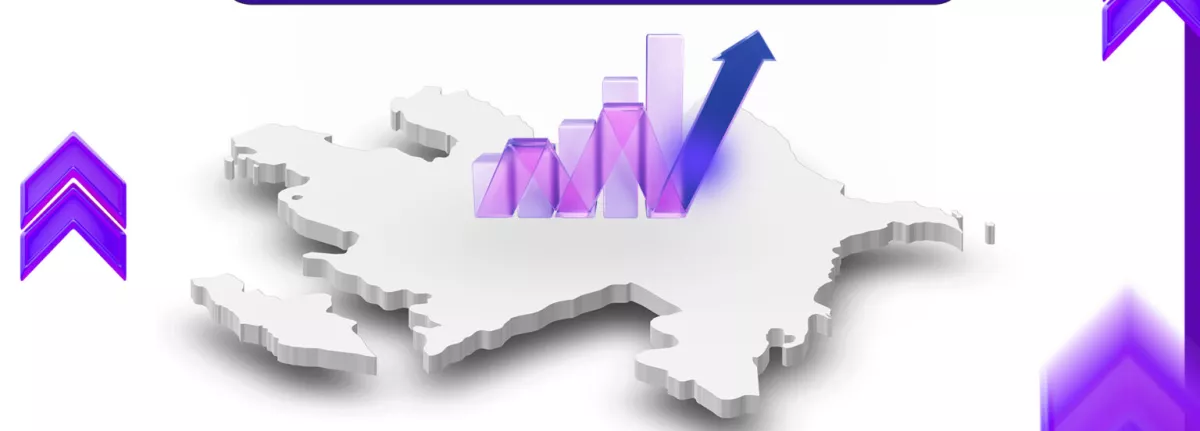
In 2024, Azerbaijan entered the Very High EGDI category of the United Nations E-Government Development Index for the first time, climbing ten positions at once. In July 2025, a delegation from the Republic of Azerbaijan, as one of the winners of the corresponding competition, took part in the “AI for Good” summit organised by the International Organization for Standardization (ISO) in Geneva, as well as in the Artificial Intelligence for Good Global Summit hosted by the International Telecommunication Union (ITU).
Artificial intelligence is rapidly becoming a key technology, and its development is receiving special attention in Azerbaijan. In March 2025, Presidential Order No. 530 approved the Artificial Intelligence Strategy of the Republic of Azerbaijan for 2025–2028.
The shift to electronic formats is taking place across the board. For instance, foreign trade is expected to be simplified through the implementation of the electronic international consignment note (eCMR). On June 19, Baku hosted the third working meeting on this issue with the participation of representatives from Azerbaijan, Türkiye, and UN experts.
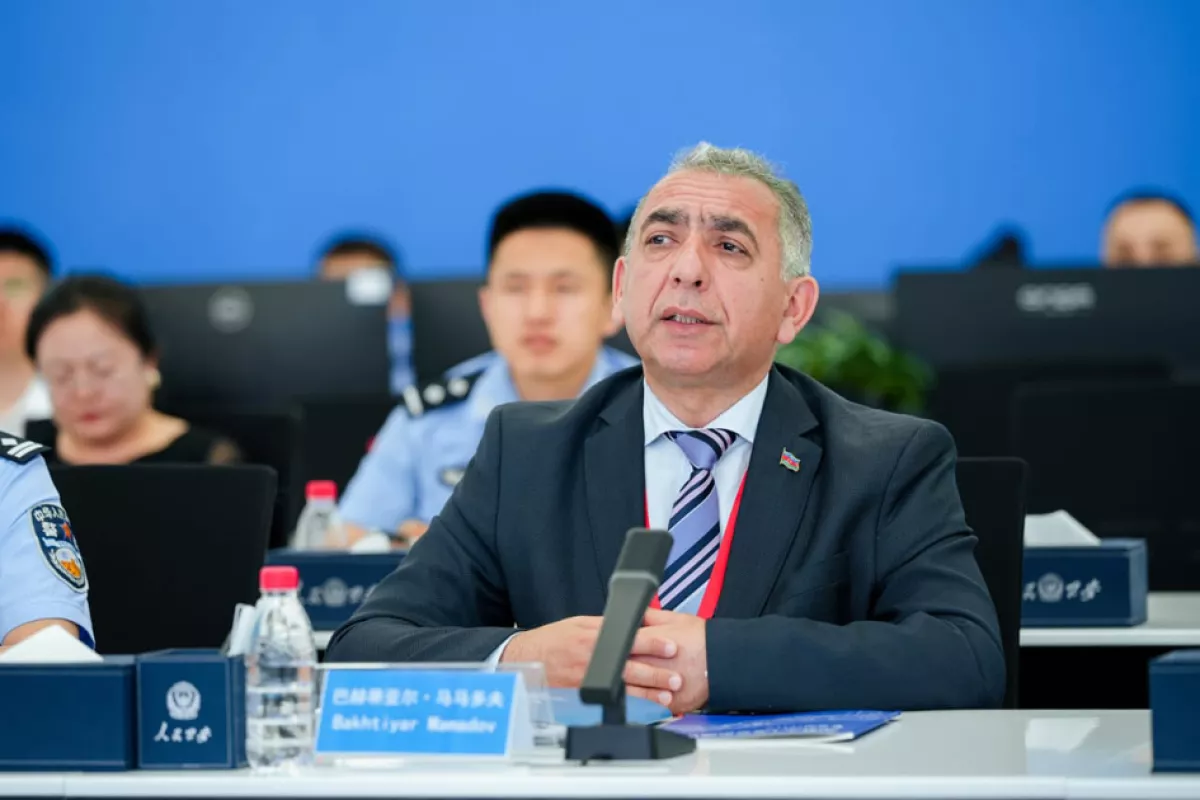
A high level of cooperation is also evident in Baku’s collaboration on information and communication technologies (ICT) with China and other members of the Shanghai Cooperation Organisation (SCO). In June, Deputy Chief of Staff of the Ministry of Digital Development and Transport (MDDT), Bakhtiyar Mammadov, took part in the 4th Meeting of SCO Ministers and Heads of ICT Agencies. During his visit, he toured several innovative Huawei facilities, including the Intelligent Transport Systems Centre and the Green Cloud Data Centre. Smart transport and green technologies are among the top priorities in this cooperation.
Digitalisation in the transport sector was also discussed during a 2024 meeting between Minister of Digital Development and Transport Rashad Nabiyev and his Belarusian counterpart, Aleksei Liakhnovich.
Digital services such as ASAN and e-Gov continue to streamline public access to government institutions, setting a new record for user applications in 2024. The Ministry of Justice has introduced the ƏN TEZ (Fastest) platform and the "Electronic Court" system, while the "Mobil Notariat" mobile app enables Azerbaijani citizens to access notarial services from anywhere in the world.
At the Ministry of Labour and Social Protection, 110 out of 173 services have been transitioned to electronic format. The MDDT, together with the Innovation and Digital Development Agency, is also working on a unified information system for public utilities. Meanwhile, the financial sector is gaining new capabilities through the implementation of blockchain technologies and digital currencies.
Digital Azerbaijan
Digital technologies are also playing a crucial role in the reconstruction of territories liberated from occupation as part of the First State Programme on the Great Return. High-speed internet and telephone services are already being provided in Shusha, Lachin, Fuzuli, Zangilan, Aghdam, Khankendi, Khojaly, Kalbajar, and other regions.
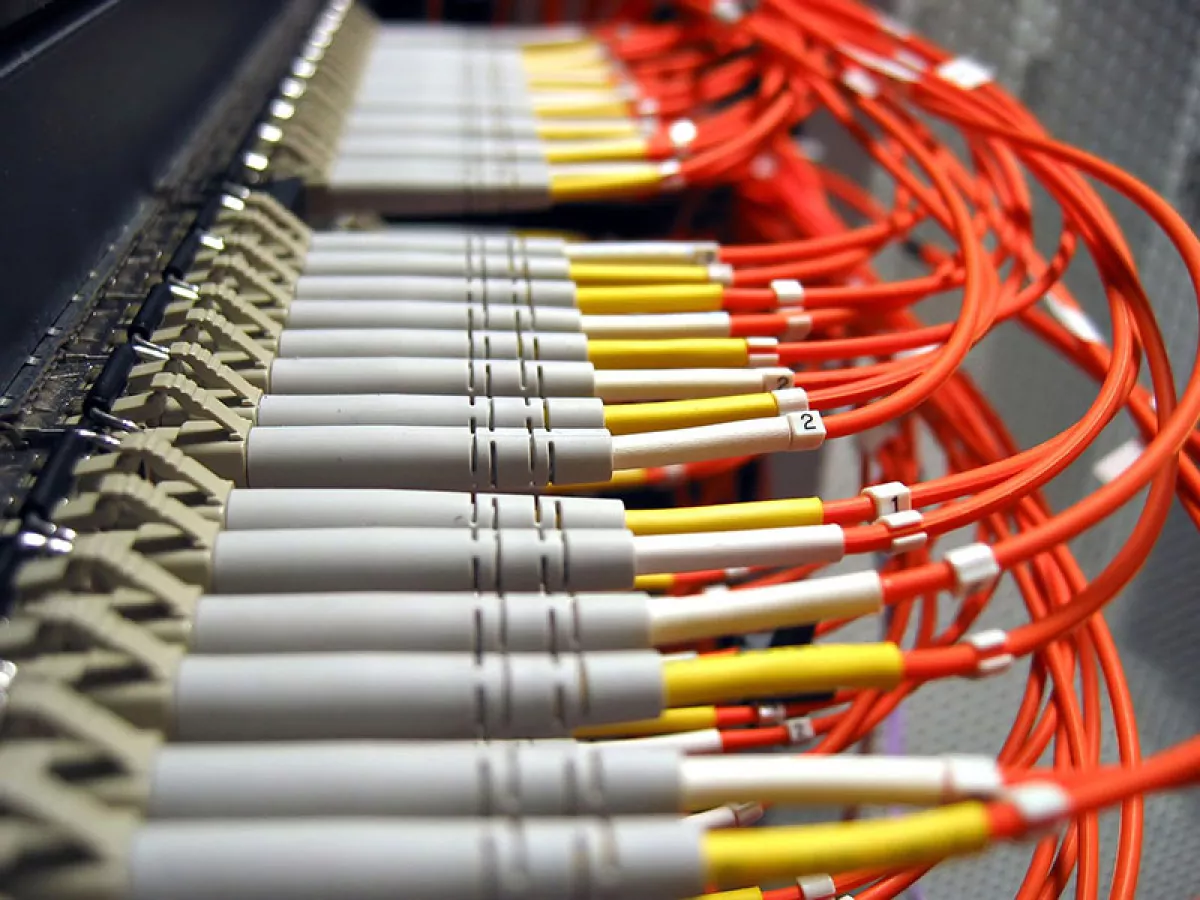
Plans are underway for the construction of a main fibre-optic communication line between Aghdam and Khankendi. In the initial phase, more than a thousand kilometres of backbone fibre-optic or alternative lines are expected to be laid.
The large-scale Online Azerbaijan project is being successfully implemented, aiming to provide the entire country with high-speed and stable broadband internet. The project involves the Ministry of Digital Development and Transport, the Azerbaijan Transport and Communications Holding, Aztelecom LLC, and other organisations.
Over four years, the number of households connected to the network has reached nearly 3 million — a 13-fold increase. In just the first nine months of 2024 alone, more than one million households and economic entities gained access to broadband internet. Average internet speeds increased by 1.4 times, surpassing 66 Mbps in January 2024. With the introduction of GPON (Gigabit Passive Optical Network) technology, internet speeds of 100–250 Mbps are now available. Today, 99.1% of households and business entities are covered by fixed high-speed internet.
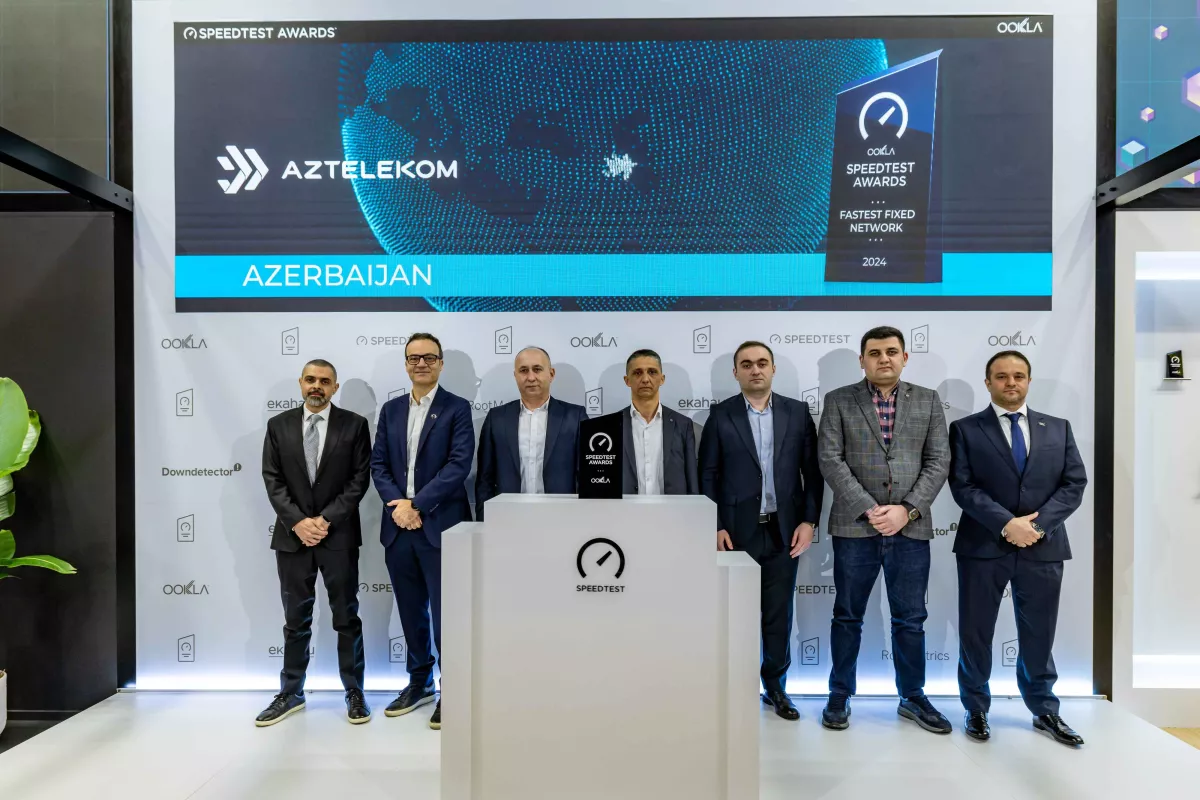
Azerbaijan’s achievements have also been recognised on the international stage. On 5 March, at the Mobile World Congress (MWC), Aztelecom LLC was awarded for having the “Fastest Fixed Network.” According to a joint study by the Ministry of Digital Development and Transport (MDDT) and the International Telecommunication Union (ITU), 77% of Azerbaijanis use social networks, and 87% of women possess basic or advanced digital skills. In 2024, the country improved its score in the E-Participation Index by 28%.
The transition to DAB+ digital radio broadcasting is underway in Baku, Sumgayit, and other regions, including in the automotive segment.
On January 16, 2025, the President of Azerbaijan approved the Digital Development Concept of the Republic of Azerbaijan. This document aims to optimally balance the interests of the state, citizens, and economy through digital technologies. Special emphasis is placed on personalising and improving accessibility of public services, supporting business, increasing transparency, developing IT sector talent, and raising digital literacy.
The goal is to transform Azerbaijan into a regional digital hub. Thanks to incentives and government support for startups, the IT sector is growing rapidly. Its representatives are also successful beyond national borders. The sector covers fintech, cybersecurity, and outsourcing. Over the first eleven months of 2024, ICT sector revenues increased by 12.5%, with its share of GDP rising from 1.7% to 1.8%.
A key state priority is to eliminate “digital inequality” and ensure equal access to all digital benefits.
Cybersecurity as a condition for national stability
Digitalisation opens new opportunities but also potential threats. Issues of stability and security are among Azerbaijan’s top priorities. Today, cybersecurity has become a crucial component of national security.

In August 2023, Presidential Decree No. 4060 was signed, establishing the Information Security and Cybersecurity Strategy for 2023–2027. In April 2022, the Association of Cybersecurity Organisations was founded, followed by the creation of the Azerbaijan Cybersecurity Centre in March 2023.
Protection against cyber threats is handled by specialists from the State Service for Special Communications and Information Security, the Cybersecurity Service of the Ministry of Digital Development and Transport (MDDT), the Cybercrime Division of the State Security Service, and the Ministry of Internal Affairs.
Azerbaijan collaborates with Israeli experts in training and programme implementation. Initiatives are also underway to reduce dependence on foreign servers by developing domestic “cloud” services.
The State Service reported a global cyberattack targeting 270,741 computers across 135 countries. Of these, 7,790 attacks targeted Azerbaijan — most of which were successfully repelled. In the 2024 Global Cybersecurity Index, Azerbaijan reached an advanced level, scoring 93.76 out of 100.
Digital logistics on the ancient path of good neighbourship
The importance of digital solutions as tools for the “green” economy was also emphasised at the 29th session of the UN Climate Change Conference (COP29), held in Baku in November 2024.
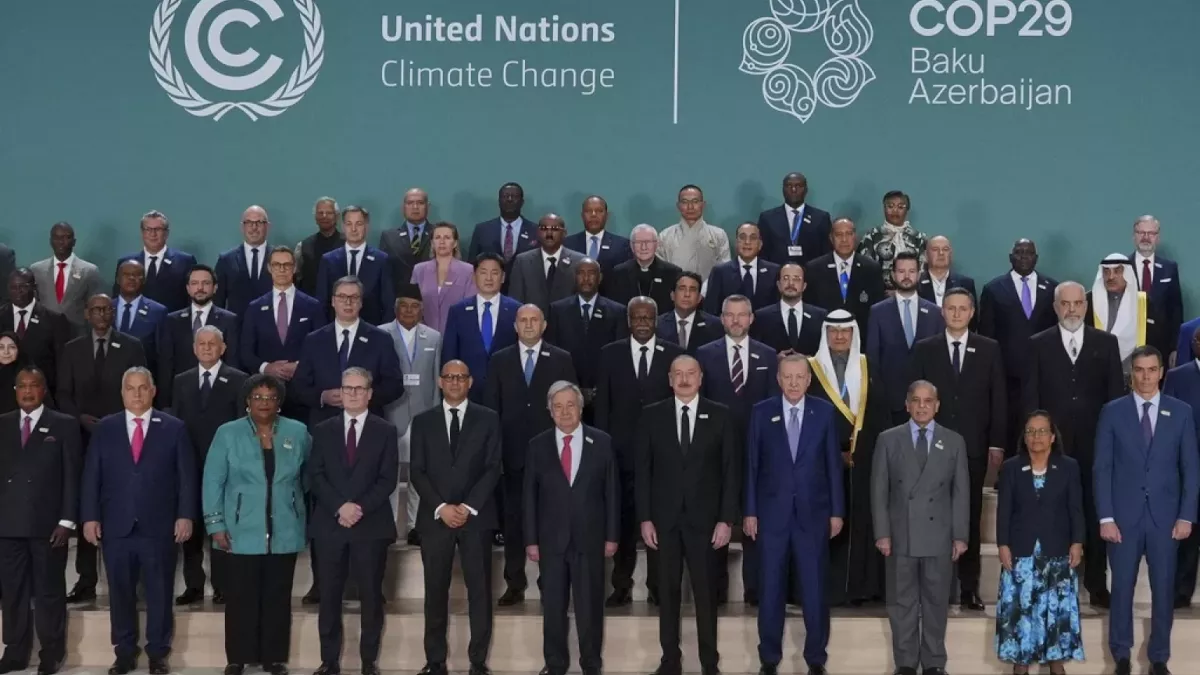
Already today, the country conducts satellite monitoring of the environment, and digital platforms are used to manage natural resources and waste, with the creation of “green” jobs becoming a priority.
Digital ecosystem monitoring is especially relevant for Azerbaijan, situated at the crossroads of two vital transport corridors. In the logistics of the Middle Corridor and the North–South route, sustainable digital technologies play a key role. A unified information system will ensure transparency and efficiency in cargo movement.
By fate and history, Azerbaijan is destined to be a bridge between Asia and Europe. This underscores once again the state’s and the people’s commitment to peace, stability, and good neighbourliness. The key is that neighbouring countries share the same sincere intentions…








